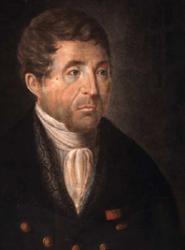Planning worship?
Check out our sister site, ZeteoSearch.org,
for 20+ additional resources related to your search.
- |
User Links
Search Results
Arise, O youth
Author: Chauncey R. Piety Appears in 2 hymnals First Line: O youth of earth, awake to glory Refrain First Line: Arise, O Youth, arise
Arise, O youth
LA MARSEILLAISE
Appears in 33 hymnals Composer and/or Arranger: Rouget de Lisle Incipit: 55511 22531 13164 Used With Text: Arise, O Youth, arise
LA MARSEILLAISE
Arise, O Youth, arise
Author: Chauncey R. Piety Hymnal: American Church and Church School Hymnal #d245 (1937) First Line: O Youth of earth, awake to glory Languages: English
Arise, O Youth, arise
Arise, O Youth, arise
Author: C. R. Piety Hymnal: American Church and Church School Hymnal #373 (1927) First Line: O youth of earth, awake to glory Languages: English Tune Title: LA MARSEILLAISE
Arise, O Youth, arise
Claude Joseph Rouget de Lisle

1760 - 1836 Person Name: Rouget de Lisle Composer of "LA MARSEILLAISE" in American Church and Church School Hymnal Claude Joseph Rouget de Lisle, sometimes spelled de l'Isle, (10 May 1760, Lons-le-Saunier – 26 June 1836, Choisy-le-Roi), was a French army officer of the French Revolutionary Wars. He is known for writing the words and music of the "Chant de guerre pour l'armée du Rhin" in 1792, which would later be known as "La Marseillaise" and become the French national anthem.
De Lisle was born at Lons-le-Saunier, reputedly on a market day. His parents lived in the neighbouring village of Montaigu.[1] A plaque was placed at the precise spot of his birth and a statue erected in the town's centre in 1882. He was the eldest son of Claude Ignace Rouget (April 5, 1735 - August 6, 1792) at Orgelet and Jeanne Madeleine Gaillande (July 2, 1734 - March 20, 1811).
He enlisted into the army as an engineer and attained the rank of captain. The song that has immortalised him, La Marseillaise, was composed at Strasbourg, where Rouget de Lisle was quartered in April 1792. He wrote the words in a fit of patriotic excitement after a public dinner. The piece was at first called Chant de guerre pour l'armée du Rhin ("War Song for the Army of the Rhine") and only received its name of "Marseillaise" from its adoption by the Provençal volunteers whom Barbaroux introduced into Paris and who were prominent in the storming of the Tuileries Palace on the 10 August. Rouget de Lisle was a royalist and was cashiered and thrown into prison in 1793, narrowly escaping the guillotine. He was freed during the Thermidorian Reaction.
Rouget de Lisle wrote a few other songs of the same kind as the "Marseillaise" and in 1825 he published Chants français (French Songs) in which he set to music fifty songs by various authors. His Essais en vers et en prose (Attempts in Verse and Prose, 1797) contains the Marseillaise; a prose tale Adelaide et Monville of the sentimental kind; and some occasional poems.
De Lisle died in poverty in Choisy-le-Roi, Seine-et-Oise. His ashes were transferred from Choisy-le-Roi cemetery to the Invalides on 14 July 1915, during World War I.
--en.wikipedia.org/wiki/
Claude Joseph Rouget de Lisle
Chauncey R. Piety
Person Name: C. R. Piety Author of "Arise, O Youth, arise" in American Church and Church School Hymnal
Chauncey R. Piety


 My Starred Hymns
My Starred Hymns


